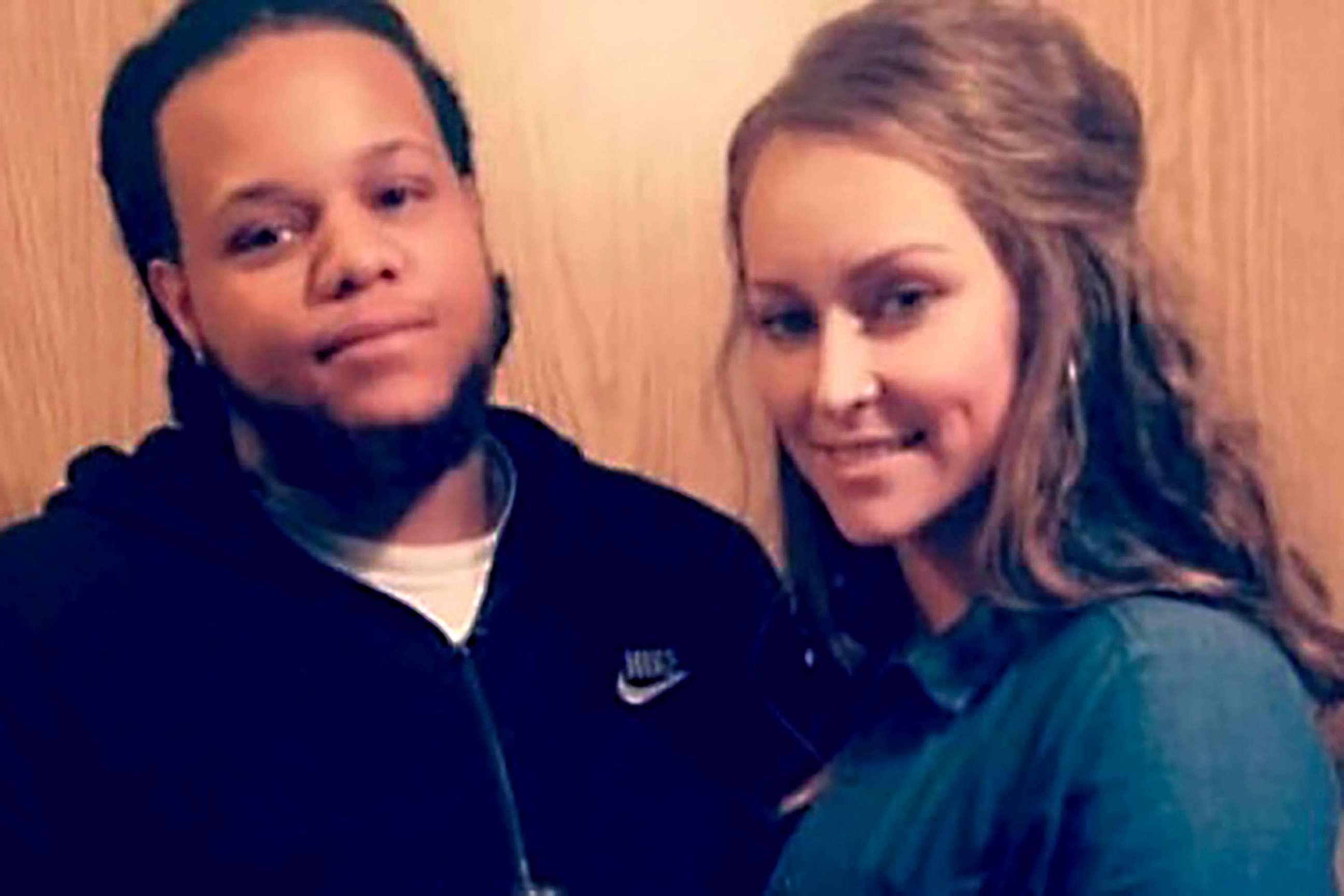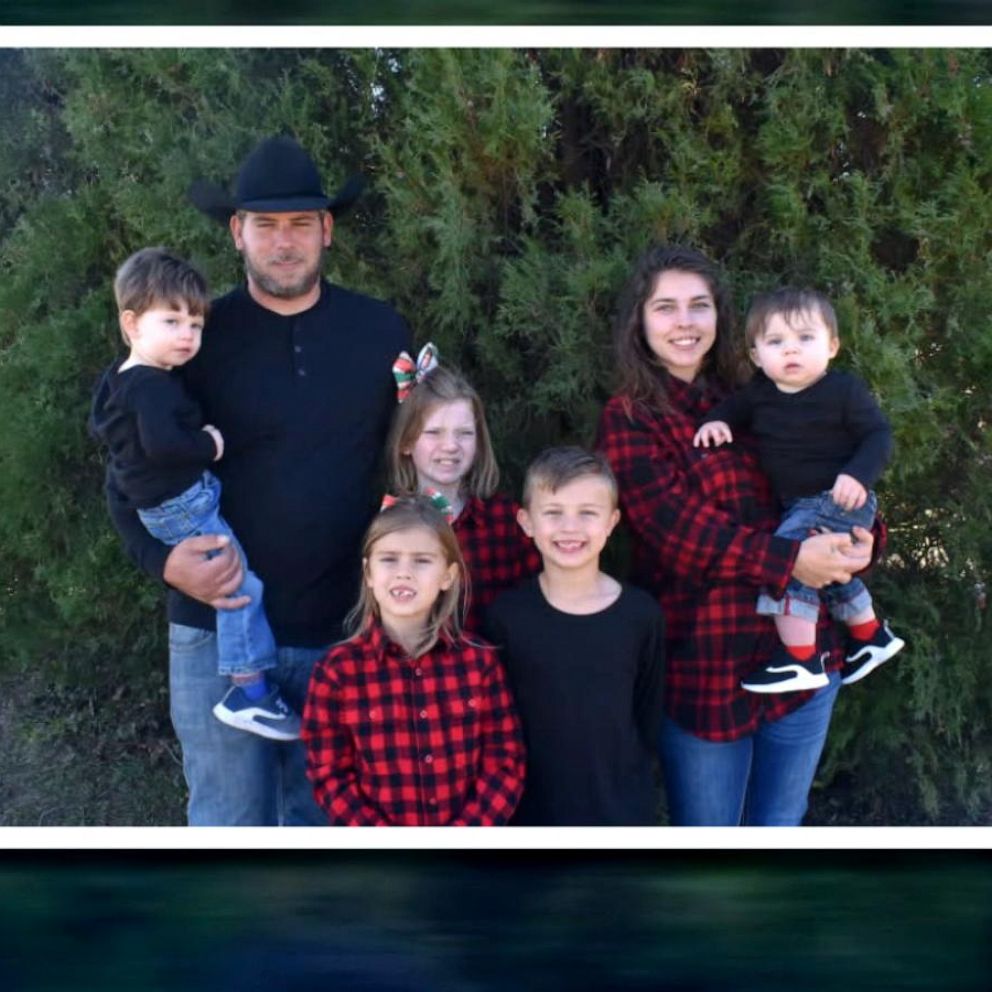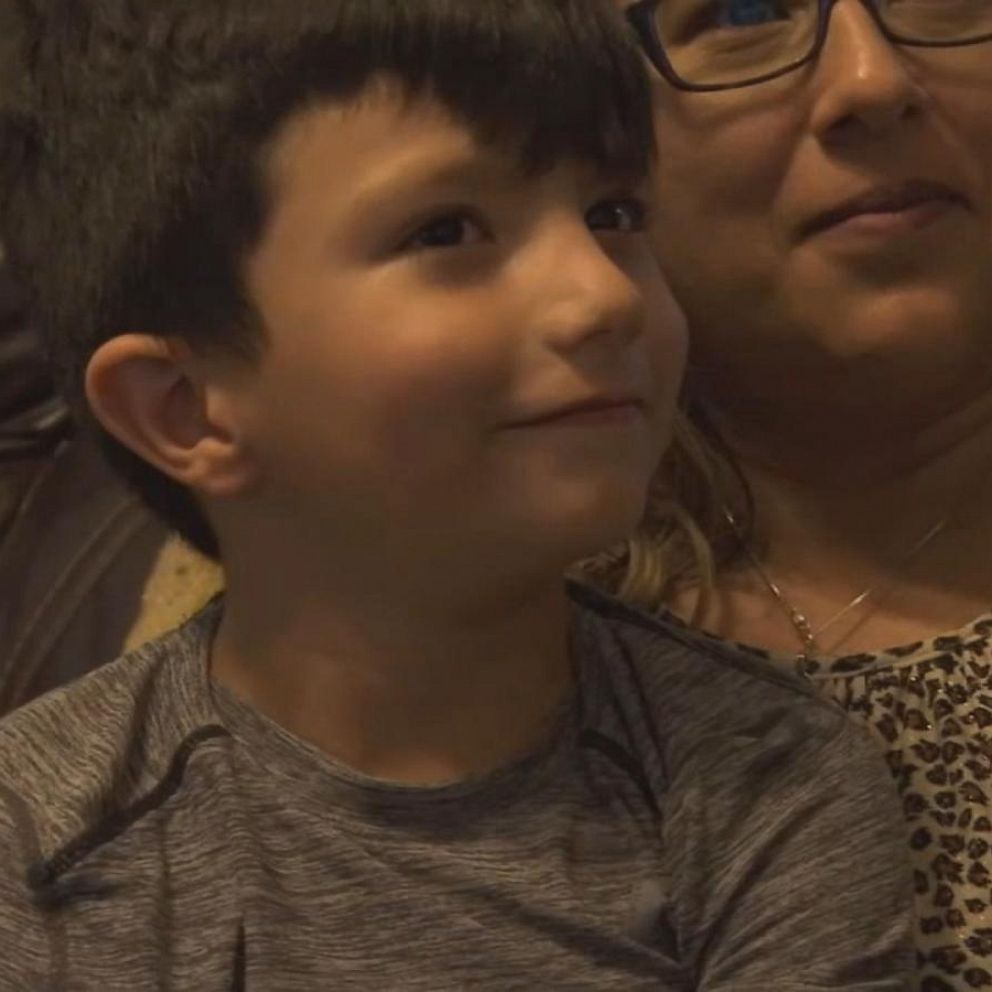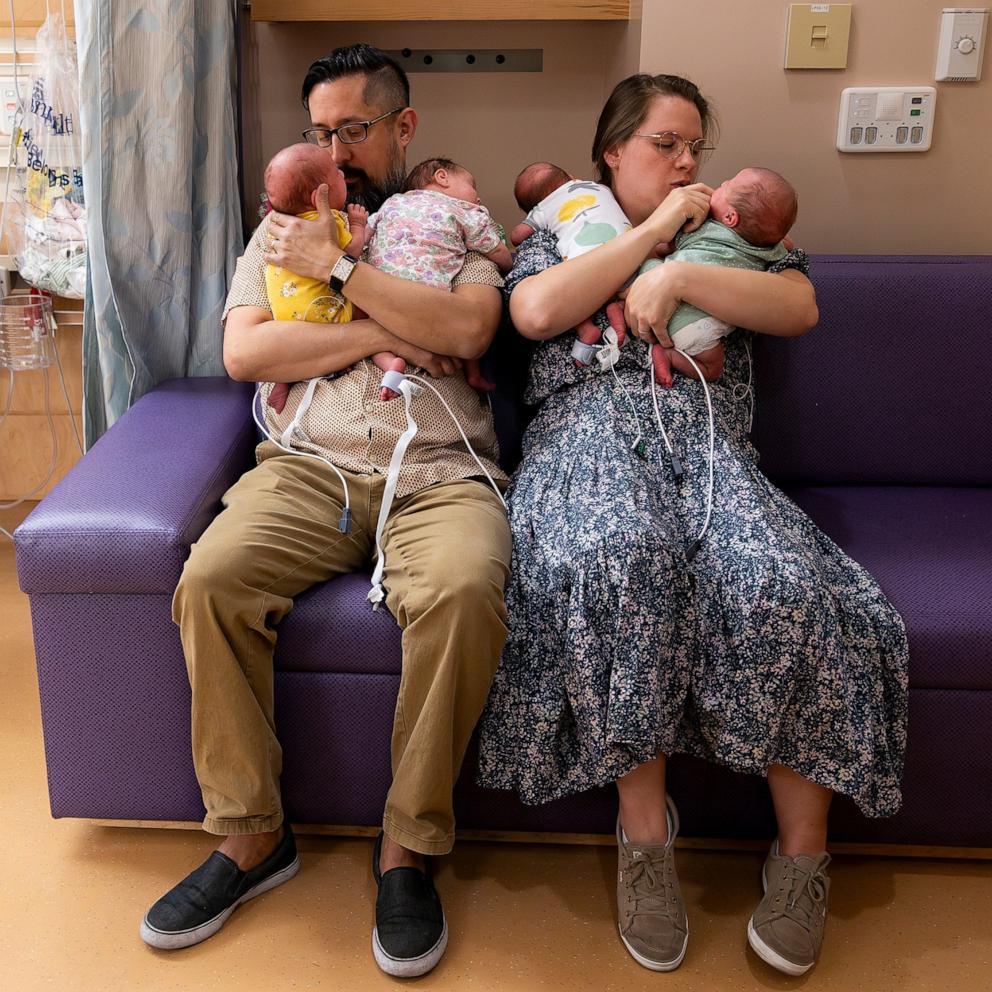Two brothers in Massillon, Ohio, are being hailed as heroes this week for jumping into action when their mother started to have a seizure while driving nearly two weeks ago.
Jermel and Jordan Taylor, 11-year-old fraternal twins, were presented with a commendation and pins and met with Massillon Mayor Kathy Catazaro-Perry and members of the Massillon Police Department in a special recognition ceremony Monday.
"We really felt that it was a worthy incident to recognize these two young twin boys, 11 years old, for their bravery, that was just amazing," Catazaro-Perry told "Good Morning America." "The outcome could have been terrible. And these young men really saved the day."

The twins' mother Crystal Thompson said she was touched to see her boys recognized.
"I knew what they did was super amazing but I never thought that it would get as big as it did. I never thought that we would meet the mayor and the boys would have that," Thompson said.

Jermel and Jordan told "GMA" they were in the car with their mom on the afternoon of Feb. 25, driving down the highway, when they noticed she was experiencing a seizure. Although the boys said they were scared and nervous in the moment, they acted quickly.
"All of a sudden, she started having a seizure. So, I took the wheel, and I parked her in a safer place," Jermel recalled.

While Jermel was steering the car, Jordan started to call for help.
"I called my stepdad first and then I got on the phone with 911," Jordan explained. "It was like my first time ever actually talking to 911."
The brothers said they stayed with their mom until local police and an ambulance arrived to transport her to the hospital.

Thompson told "GMA" she's had epilepsy since 2014 and had been experiencing seizures infrequently, about once a year, until recently. Epilepsy is a general term for a brain disorder that causes seizures, according to the Centers for Disease Control and Prevention.
There are multiple types of seizures and most seizures end in a few minutes. Seizures do not usually require emergency medical attention. If you think someone is having a seizure, the CDC recommends calling 911 if the person has difficulty breathing or waking up, is hurt, is in water or the seizure lasts longer than five minutes, or if someone has seizures back to back. People should also call 911 if someone is having a seizure for the first time.
Thompson said she doesn't remember having the seizure and hadn't felt anything unusual that day.
"It's like, you don't leave your house just expecting to have a seizure while you're driving. So, it wasn't something I could have known," Thompson said. "I didn't feel anything different when I left the house that day."
"After the wreck, the only thing that I remember is me waking up in the ambulance, and one of the ambulance drivers, the first thing she said is that the boys were OK and that they were with their stepdad and my mom. So, after that, I pretty much don't remember anything until later on that night when I was already home," Thompson added.
Since the accident, Thompson said she's thought of the "what ifs" but is feeling grateful and trying to focus on the silver lining.
"It puts a toll on you and makes you feel horrible. But that's when I think of the brighter side, like, we're here. Obviously, there was a purpose for the boys to be with me that day. They saved me and other people," Thompson said. "It's a long process coming back after a seizure, but slowly, but surely, I'm trying to get back to myself."
Jordan and Jermel, meanwhile, encouraged others to take action in the face of a medical emergency.
"I would tell kids if you see something bad going on, you should always help them out," Jordan said. "If they especially have seizures, you should ask them all the time like, 'Where are you going? And are you OK to drive?'"
"You don't know how long somebody's gonna live and that's why you should always help them out," Jermel added. "You should always be a hero, no matter what they have wrong with them. You should always be a hero no matter what happens."







